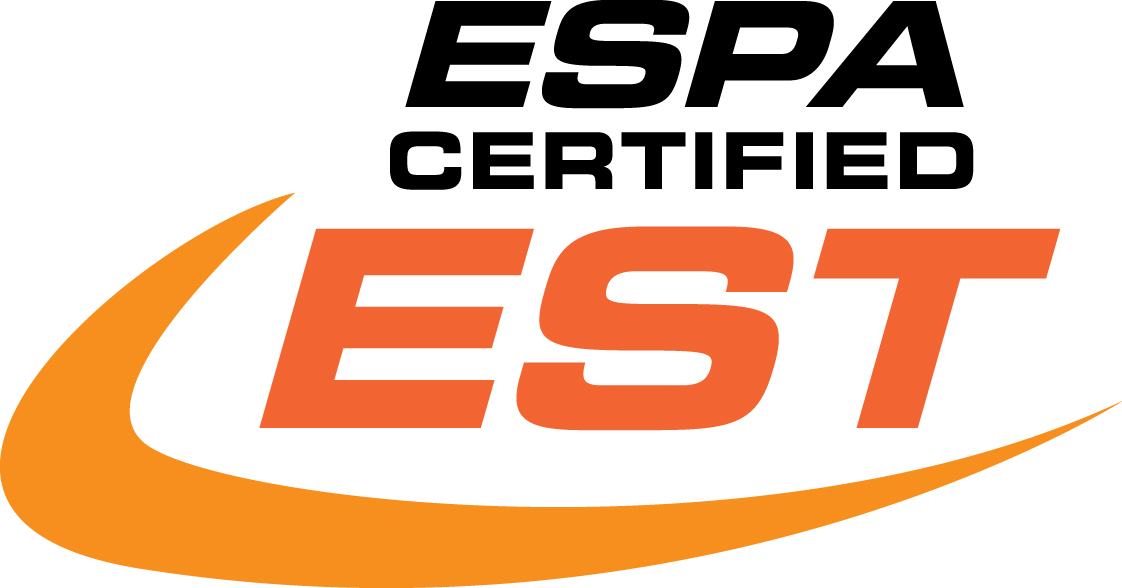 NSCA and ESPA have unified their approach to CEU requirements for the C-EST and C-EST L2 certification programs. Both C-EST and C-EST L2 programs are now considered “one-time” certifications and serve as stepping stones to other training and certification programs offered in the systems integration industry.
NSCA and ESPA have unified their approach to CEU requirements for the C-EST and C-EST L2 certification programs. Both C-EST and C-EST L2 programs are now considered “one-time” certifications and serve as stepping stones to other training and certification programs offered in the systems integration industry.
Please read through this list of commonly asked questions to learn how this will impact current C-EST and C-EST L2 certificate holders.
Q: Why is there no longer a CEU requirement to maintain my C-EST or C-EST L2?
A: Because the majority of job tasks, math and physics, and the basics of electronics haven’t changed in previous program review cycles.
Q: Who does this change impact?
A: All current and new C-EST and C-EST L2 certificate holders, as well as NSCA C-EST LS-certified technicians. These certificate holders now have a permanent, non-expiring credential that does not require CEUs to maintain.
Q: Will I receive a new certificate?
A: Yes. NSCA will reissue new certifications with no listed expiration date to certificate holders by December 2015.
Q: How long is my certification valid?
A: Certification is now valid for the length of your professional career.
Q: What is the cost to obtain my new certificate?
A: The replacement certificate will be provided at no cost to you.
Q: What other industry certification programs are available to me?
A: Training and certification are key ways to advance your career, as well as provide job security and better compensation. There are several certification and training opportunities available to you:
Custom Electronic Design and Installation Association (CEDIA)
Residential electronic systems
Certifications include:
• Gateway Certification
• Certified Professional Electronic Systems Technician II
• Certified Professional Electronic Systems Designer
• Residential Networking Specialist
• Structured Cabling Assessor
National Systems Contractors Association (NSCA)
Commercial electronic systems
Training includes:
• Business & Leadership Conference
• Integration Business Survival Conference
• Free webinars
• Industry-specific webinars (sales, marketing, project management, and finance)
Electronic Security Association (ESA)
Security and alarm installation
Certifications include:
• Certified Alarm Technician Level I
• Certified Fire Alarm Technician Level II Fire
• Certified Alarm Technician (CAT) Level II
• Certified Fire Alarm Designer (CFAD) Level III Fire
• Certified Service Technician (CST)
• Certified Systems Integrator (CSI)
• Certified Security Salesperson (CSS)
• Certified Residential Fire Alarm Inspector (CRFAI)
CompTIA
Computer technologies and networking
Certifications include the following (plus many others):
• A+
• Network+
• Security+
• Healthcare IT Technician
• Cloud Essentials
Home Acoustics Alliance (HAA)
Home theater acoustics and audio calibration
Certifications include:
• HAA TurboCal
• HAA Level 1
• HAA Level 2
Imaging Science Foundation (ISF)
Video technologies and calibration
Certifications include:
• ISF Level I
• ISF Level II
InfoComm
Commercial audio/video systems
Certifications include:
• Certified Technology Specialist (CTS)
Project Management Institute (PMI)
Project management
Certifications include:
• PMP Certification

